

PROF. DR. AHMET ÖZCAN
Prof. Dr. Ahmet ÖZCAN is a faculty member at the History Department of the Turkish Military Academy of the National Defense University, and currently serves as the Head of the Department of Social and Human Sciences. Özcan graduated from the History Department of the Faculty of Language, History-Geography in 1992, and received his MA from the Graduate School of Social Sciences of Kırıkkale University with his study on a manuscript titled Kethüda Said Efendi Tarihi Transkripsiyonu ve Değerlendirmesi (The History of Kethüda Said Efendi and its critique) (1999); and his PhD from the Graduate School of Social Sciences of Hacettepe University with his doctorate thesis titled Türkiye’de Popüler Tarihçilik (Popular Historiography in Turkey) (2008). During his postgraduate studies, he worked as a second-hand bookseller in Ankara (1995-2008). After completing his PhD, he started teaching as an Assistant Professor at the History Department of Çankırı Karatekin University (2009). He stayed in London for approximately one year in 2009-2010 (SOAS). Özcan, who received the title of Associate Professor in 2014 and Professor in 2019, held administrative positions at Çankırı Karatekin University such as Advisor to the Rector, Head of the History Department, Director of the Institute of Turkology, Dean of the Faculty of Letters and Vice Rector. During his years at Çankırı Karatekin University, Özcan gave lectures as a visiting professor at the Faculty, Officer Training Center and Institute of Security Sciences of the Gendarmerie and Coast Guard Academy; NDU Turkish Military Academy and Alparslan Defence Sciences and National Security Institute. He has been working as a Professor at the NDU Military Academy since May 2022. His areas of study are historiography, military historiography, press and publishing history, gendarmerie history (law enforcement history), historical sources, biography and bibliography. Özcan’s work titled Türkiye’de Popüler Tarihçilik, which has been published by Turkish Historical Society, received the best research award of the Writers Union of Türkiye in 2011. Özcan has popular history and essay-style writings in addition to his academic publications. Özcan, who served as a member of the Atatürk Research Center Scientific Board for two years, also took part in the Turkish Historical Society Military History Commission in 2022 and became a member of the Turkish Historical Society’s Scientific Board in November 2023.

Prof. Dr. Ahmet TAŞAĞIL completed his BA in 1985 and his PhD in 1991 at Istanbul University with his thesis titled “Göktürks (542-630). He worked as a research assistant, assistant professor, associate professor and professor in the History Department of Mimar Sinan Fine Arts University. He held administrative positions such as Dean at Hoca Ahmet Yesevi International Turkish-Kazakh University, Director of the Research and Application Center at Kyrgyzstan-Turkey Manas University, Vice Rector and Department Head at Mimar Sinan Fine Arts University. He has been working at the History Department of the Faculty of Arts and Sciences at Yeditepe University since 2015. Taşağıl conducts studies on Pre-Islamic Turkish History, History of Central Asia, and Turkish Cultural History.
Some of his works: Bozkırın İlk İmparatorluğu Hunlar, Gök Börü’nün İzinde: Kadim Türk Topraklarında, Çin Kaynaklarına Göre Eski Türk Boyları (M.Ö.III-M.S.X. Asırlar), Kök Tengri’nin Çocukları.

PROF. DR. ALİ TEMİZEL
Prof. Dr. Ali TEMİZEL graduated from the Department of Persian Language and Literature at Atatürk University in 1987. He completed his MA in Persian Language and Literature at Selçuk University in 1996 and his PhD in Persian Language and Literature at Ankara University in 2002 with his thesis titled “Ahmedî’nin Farsça Eserleri-Tenkitli Metin, İnceleme, Tercüme ve İndeks” (“The Works of Ahmedi in Persian -Edition Critics Investigation, Turkish Translation and Index-”). He completed his military service in 1988-1989 as a Reserve Officer Persian Teacher at Land Forces Language School. He worked as a teacher at the Prime Ministry-Social Services and Child Protection Agency Kayseri Boys Orphanage between March 1990 and March 1991. He worked as a Persian Translator-Secretary at the Consulate General of the Republic of Türkiye in Tabriz between April 1991 and November 1992. On November 23, 1992, he started working as a research assistant at the Department of Persian Language and Literature at the Faculty of Arts and Sciences of Selçuk University. He received the titles of Assistant Professor in 2007, Associate Professor in 2012 and Professor in 2017 in the same department. Between 2006 and 2010, he worked as a Turkish Lecturer at Allameh Tabataba’i University in Tehran, Iran, upon the decision of the Ministry of National Education of the Republic of Türkiye and the Inter-Ministerial Joint Culture Commission. In 2012, he went to Berlin, Germany, with a CHE scholarship, and conducted research on the teaching of Persian at Frei University and on manuscripts at the Staatsbibliothek zu Berlin. Between 2012 and 2016, he served as the Vice Dean at the Faculty of Letters at Selçuk University. Since 2013, he has been the Head of the Department of Persian Language and Literature at Selçuk University. In 2014, he gave Persian lessons at Adam Mickiewiez University in Poznan, Poland, within the framework of the Erasmus Exchange Program. Between 2015 and 2021, he served as the Director of the Selçuk University Institute of Mevlâna Researches. His books, including Ahmedî’nin Mîzânu’l-Edeb ve Mi‘yâru’l-Edeb’i ve Tercümesi (Konya 2005), Mevlâna, Çevresindekiler, Mevlevîlik ve Eserleriyle İlgili Eski Harfli Türkçe Eserler (Konya 2009) and Kistâsu’ş-Şi’r der ‘İlm-i ‘Arûz (Tehran 2010), have been published.

Prof. Dr. Ali Uzay PEKER graduated from the Department of Art History of the Faculty of Letters of Istanbul University in 1985. He completed his MA in History at the Institute for Graduate Studies in Social Sciences of Boğaziçi University, and his PhD in 1996 at the Graduate School of Istanbul Technical University with a thesis titled “A Study of Meaning in Anatolian Seljukid Monumental Architecture Based on Cosmology.” He has worked as a research assistant, lecturer, assistant professor, associate professor and professor in the Department of Architecture, History of Architecture at Middle East Technical University. Prof. Peker, who is also a postdoctoral fellow at the Canadian Centre for Architecture, conducts studies on the history of art and architecture, medieval archaeology, architectural symbolism and cultural heritage in the fields of social sciences and humanities. Prof. Peker has edited books and published articles.
Some of his works: Anadolu Selçukluları ve Beylikleri Dönemi Uygarlığı: Sanat ve Mimarlık; Zigetvar Kanunî Sultan Süleyman Türbe-Palankası’nda Araştırma ve Arkeolojik Çalışmalar 2015-2017; İsfahan Cuma Câmii’nin Maksûre Kubbesi ve Üzerindeki Bânî Kitâbesinde Yer Alan “Sultan” Unvanı Üzerine; Mimar Sinan’dan Öğrenmek: Cami Tasarımında Özgünlük Arayışına Yanıtlar.

Prof. Dr. Arif BİLGİN graduated from the History Department of the Faculty of Letters at Istanbul University in 1989. He completed the Economic History program at the Institute of Social Sciences at Marmara University in 1994 with his thesis titled “İstanbul Müftülüğü Şer’iyye Sicilleri Üsküdar Mahkemesi 142 no’lu Feramin ve Hüccet Defteri’ne göre (1622-1623) Osmanlı Ekonomisi”. He submitted his doctoral thesis titled “The Provisioning of Ottoman palace (1489-1650)” at the same university and field in 2000. After working as a research assistant at Manisa Celal Bayar University, he received the titles of assistant professor, associate professor and professor at Sakarya University. He currently serves as a professor at the History Department of the Faculty of Arts and Sciences at Sakarya University. He has studies in areas such as Ottoman and palace cuisine, travel books, social history and historiography.
Some of his books, book chapters and articles are: Turkish Cuisine, “Seyahatnamelerde Kapalı Çarşı”, “Osmanlı Medeniyetinin Temel Belirleyicileri”, “Osmanlı Döneminde İstanbul Mutfak Kültürü”.

Prof. Dr. Arzu TERZİ, graduated from Istanbul University, Faculty of Letters, History Department in 1989 and has been working in the Department of Ottoman Institutions and Civilization History, Istanbul University, Faculty of Letters, History Department, and currently teaches undergraduate, graduate and doctoral courses. She completed her master’s degree in 1992 with her thesis titled ” Aydın Güzelhisarı’nın (Aydın Şehri) Sosyal ve İktisadî Durumu” and her doctorate in early 1998 with her thesis titled “Hazine-i Hassa Nezareti”. Her master’s thesis was published in “Chapter 5: Güzelhisar-Aydın: Portrait of a West Anatolian City, The Ottoman State and Societies in Change, A Study of the Nineteenth Century Temettuat Registers (Kegan Paul, London-Newyork-Bahrain 2004). Her doctoral thesis was published by the Turkish Historical Society (Hazine-i Hassa Nezareti, Ankara 2000). Continuing her studies in the fields of Ottoman Socio-Economic History, Ottoman Institutions and Palace Organization, Prof. Terzi has numerous book chapters and articles published both domestically and internationally, including the books Hazine-i Hassa Nezareti, Sultan Abdülhamid’in Mirası Petrol ve Arazi, Sarayda İktidar Mücadelesi-Saray Mücevher İktidar, Bezmiâlem Valide Sultan, Bezmiâlem Valide Sultan Vakfiyeleri. Prof. Dr. Arzu Terzi is the Director of the History Research Center at the Faculty of Letters of Istanbul University and the Editor-in-Chief of the Istanbul University Tarih Dergisi /Turkish Journal of History, and also teaches at the faculties of Bezmiâlem Vakıf University with an additional assignment.

Prof. Dr. Azmi ÖZCAN completed his undergraduate education at Ankara University, Faculty of Theology in 1983. He received his MA from the University of Manchester in 1986 and his PhD from SOAS, University of London in 1990 with his thesis titled “Indian Muslims and the Ottomans 1877-1914: a study of Indo-Muslim attitudes to Pan-Islamism and Turkey.” Özcan worked as a researcher at İSAM (Center for Islamic Studies) until 2001 and served as the head of the institution between 1996-97. He worked at Boğaziçi, Marmara, and Sakarya Universities. He served as the founding rector of Bilecik Şeyh Edebali University between 2007-2016. He currently continues his studies at Fatih Sultan Mehmet Vakif University. His main areas of research are Ottoman-Indian relations, colonialism, Modern Ottoman Political History, and Ottoman-British relations.
Some of his works are: Pan-Islamism: Pan-Islamism : Indian muslims, the Ottomans and Britain: (1877-1924), İngiltere’de Hilafet Tartışmaları 1873-1909, The press and Anglo‐Ottoman relations, 1876–1909

Prof. Dr. Cengiz TOMAR was born in 1970 in Üsküdar. After completing his primary education there, he completed his secondary and high school education at Üsküdar Imam Hatip High School between 1981-1988.He graduated from the History Department of the Faculty of Arts and Sciences at Marmara University in 1992. He was appointed as a research assistant to the same department in 1993. He completed his master’s degree at Marmara University Institute of Turkic Studies with his thesis titled “Memlük Devleti`nin Kuruluşu ve Gelişmesi: 1240-1260” in 1996 and his doctorate in 2006 with his thesis titled “Ortaçağda Askeri-Kölelik Sistemi.” He studied Arabic and Middle Eastern Studies at the University of Jordan in 1993-1995, English at METU in the 1996-1997 academic year, and Middle Eastern Studies at the University of Edinburgh in 2000-2003. He worked as a faculty member at Damascus University between 2003-2005. He received the title of associate professor in 2011. He served as the deputy director of the Institute of Middle East Studies, Marmara University and the head of the Department of Political History-International Relations between 2011-2014. He was appointed as a professor in 2016. He served as the vice rector of Yalova University in 2017. He was appointed as the dean of the Faculty of Political Science at Marmara University in December 2017. He also founded and served as the director of the Marmara University Jerusalem Studies Center. He served as the acting rector of the Hoca Ahmet Yesevi International Turkish-Kazakh University between 2018-2021. He served as a member of the scientific board of the Turkish Religious Foundation’s Islamic Encyclopedia, Islamic History and Civilization between 1998-2016, and as a coordinator and head of the research department at the Research Centre For Islamic History, Art and Culture (IRCICA) between 2008-2017. He is on the editorial board and referee board of many scientific journals in his field, and has organized nearly a hundred symposiums and scientific meetings. In addition to his books, editions and translations, he has numerous academic and popular articles on Islamic History and Civilization, the history and culture of the Middle East and the Arab world, and is a regular commentator on national TV channels as well as international channels broadcasting in Arabic and English, such as al-Jazeera, BBC, and Russia Today.

Assoc. Prof. Dr. Çiğdem ATAKUMAN completed her BSc degree at METU – Chemical Engineering Department and her MSc degree at METU – Department of Archaeometry. She received her PhD in Archaeology from UCLA (University of California-Los Angeles) with her thesis examining the prehistoric settlement texture of Kahramanmaraş, focusing on Domuztepe Mound. Assoc. Prof. Dr. has been a faculty member in the Department of Settlement Archaeology at METU since 2011. Çiğdem Atakuman served as the founding director of the METU Society and Science Application and Research Center and the METU Science and Technology Museum between 2005-2007, the Head of the The Scientific and Technological Research Council of Türkiye (TÜBİTAK) Science and Society Department between 2007-2009, the Director of the METU Archaeology Museum between 2013-2020, and the Director of the METU Center for Research and Assessment of Historical Environment between 2017-2020. Since 2015, she has served as the deputy director of the excavations at Gökçeada-Uğurlu Mound, one of the earliest Neolithic settlements in the Aegean, and the director of the Bozburun-Marmaris prehistoric survey between 2017-2021. In addition to her expertise in symbolic thought and ritual in the prehistoric period, Atakuman is also known for her work on archaeology and cultural heritage policy. Atakuman, who has recently been researching the emergence and spread of Neolithic life in Anatolia and Europe by combining ancient DNA and objective cultural data, is one of the principal researchers of the NEOGENE project, which is the first European Research Council (ERC) project received by our state universities on this subject.
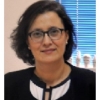
Prof. Dr. Dilşen İNCE ERDOĞAN completed her BA degree at the Middle East Technical University, Faculty of Arts and Sciences, Department of History and her MA degree at the Dokuz Eylül University, Principles of Atatürk and Revolution History Institute with her thesis titled ” Sıratiı Müstakim: Women and family in the period of constitution II “. She received her doctorate from the same university with her thesis titled ” American missionaries in the Ottoman Empire and the Van rebellion(1896)”. İnce Erdoğan, who started working as a research assistant and lecturer at the Dokuz Eylül University, Principles of Atatürk and Revolution History Institute, worked first as an Assistant Professor and then as an Associate Professor and Professor at the Aydın Adnan Menderes University, Faculty of Arts and Sciences, Department of History. During this period, she assumed various positions such as Advisor to the Rector, Vice Dean of the Faculty of Arts and Sciences, Director of the Adnan Menderes Research and Application Center, Deputy Director of the Women’s Studies Research and Application Center, and Director of the Atatürk’s Principles and History of Turkish Revolution Research and Application Center. İnce Erdoğan, who served as a project manager in many scientific research projects at Aydın Adnan Menderes University, prepared the project of the Adnan Menderes Democracy Museum and was a member of the advisory staff during its establishment. In 2019, she started working as a professor at the Department of History, Faculty of Letters, Dokuz Eylül University, and in 2020, she served as a member of the Scientific Board at the Atatürk Supreme Council for Culture, Language and History, Atatürk Research Center, and as the President of the International Relations Commission of the same institution. In addition, she assumed positions such as the chairman of the organizing committee and member of the organizing committee in national and international congresses. Her areas of interest include missionary activities and American missionaries, Turkish-Armenian relations, Armenian terror, the Democratic Party, the British press, banditry in the Ottoman Empire, the National Struggle, and women’s movements in the Ottoman Empire and the Republic of Turkey. In addition, İnce Erdoğan has conducted studies abroad with a CoHE scholarship, written books, articles, book chapters in his field, translated and edited books, and participated in many national and international congresses.
Some of her books are Activities of American Missionaries and Van Armenian Revolts 1896, Understanding is to Explain the Armenian Question.
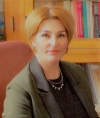
Prof. Dr. Ebru ALTAN completed her undergraduate studies at the History Department of the Faculty of Letters at Istanbul University between 1988-1992. In the same year, she started her MA studies at the Institute of Social Sciences of the same university. As her MA thesis, under the supervision of Prof. Dr. Işın Demirkent, she graded and translated books XI and XII of Willermus Tyrensis’s historia rerum in partibus transmarinis gestarum (History of Deeds Done Beyond the Sea) into Turkish and graduated from this program in 1995. During this period, she continued her education as a guest student in the Departments of Eastern Languages and Literature and Classical Philology of the same university and worked at the Research Institute of Turkology; in 1995 she was appointed as a research assistant to the Department of History of the Faculty of Letters, Department of Medieval History. Again, she received her doctorate in 2000 with her thesis titled The Second Crusade (1147-1148), which she prepared under the supervision of Prof. Dr. Işın Demirkent, and in 2003 she was appointed as an Assistant Professor in the Department of Medieval History, Faculty of Letters, History Department, Istanbul University. With the support of the Scientific and Technological Research Council of Türkiye (TÜBİTAK), she conducted studies within the scope of the project on the Antioch Crusader Principality at the University of London for one year and received the title of Associate Professor in 2009 and Professor in 2015. She currently teaches undergraduate and graduate courses on Byzantine History, Crusades and Latin Eastern History, and 11th-13th century Turkish-Byzantine relations in the same department, where she is the head, and continues her scientific studies on these subjects.

Prof. Dr. Erhan AFYONCU graduated from the Department of History Teacher Education, Social Sciences Education, Ataturk Faculty of Education, Marmara University in 1988. In 1989, he was appointed as a research assistant to the same department and completed his master’s degree at Marmara University with the thesis titled “Necati Efendi Tarih-i Kırım (Rusya Sefaretnamesi)” in 1990. He completed his doctorate in 1997 with the thesis titled “Defterhane-i Âmire (XVI-XVIII. Yüzyıllar) at the Ottoman State Organization”. He became an Assistant Professor in 2000. He was transferred to the Department of History, Faculty of Arts and Sciences, Marmara University in 2001. He became an Associate Professor in 2008 and a Professor in 2014. Afyoncu, who became the Dean of the Faculty of Arts and Sciences at Marmara University in 2016, was appointed as the Rector of the National Defense University in the same year. He conducts studies on Ottoman bureaucracy, war history, tribes, Ottoman historians and historiography.
Some of his works are: Osmanlı-Safevî Savaşlarına Dair Bir Kaynak Tevârih-i Gazavât-ı Sultan Murâd-ı Sâlis, Tanzimat Öncesi Osmanlı Tarihi Araştırma Rehberi, Osmanlı Devlet Teşkilatında Defterhâne i Âmire XVI-XVIII. Yüzyıllar.

Prof. Dr. Erol ÖZVAR graduated from Marmara University, Department of Economics in 1989. He completed his master’s and doctorate degrees in economic history at the same university. Between 2009 and 2012, he worked as a visiting scholar at the Harvard University Center for Middle East Studies and at the Harvard Law School Program inIslamic Law, where he received research support. He is a member of the board of directors of the International Association for the Social and Economic History of Türkiye and a member of the scientific board of the International Economic History Association. He served as the rector of Marmara University between 2018 and 2021. He has been serving as the President of the Council of Higher Education since 2021. His scientific studies have generally addressed changes in economic and financial institutions specific to the Middle East and the Ottoman Empire in particular.
Some of his works are: Osmanlı Maliyesinde Malikane Uygulaması, Osmanlı Maliyesi: Kurumlar ve Bütçeler, Tarih Felsefesi Üzerine Denemeler.

Prof. Dr. Fatma Gül DEMİREL graduated from the History Department of the Faculty of Letters at Istanbul University in 1993. She completed her master’s degree at the same university in 1996, and her doctorate with her thesis titled “Establishment and activities of Adliye Nezareti (1876-1914)” in 2003. She currently works as an academic in the Department of Humanities and Social Sciences of the Faculty of Arts and Sciences at Yıldız Technical University. In addition to her published articles on the History of Turkish Press and Law, Demirel has books titled II. Abdülhamid Döneminde Sansür, Adliye Nezareti’nin Kuruluşu ve Faaliyetleri (1876-1914), Dolmabahçe ve Yıldız Saraylarında Son Ziyaretler Son Ziyafetler, II. Abdülhamid’in Mirası: İstanbul’da Kamu Binaları, Cumhuriyet Kurulurken Hayaller ve Umutlar.

Prof. Dr. Feridun EMECEN completed his doctorate in Ottoman History at Istanbul University in 1985 with his thesis titled “XVI. Asırda Manisa ve Yöresinin Sosyal ve Ekonomik Tarihi”. He became an associate professor in 1989 and a professor in 1995. Emecen, who has held various administrative positions at Istanbul University, is currently the Dean of the Faculty of Letters at Istanbul 29 Mayıs University. Emecen, who has many works and researches in various fields of Ottoman History, is one of the few experts especially on the Ottoman Classical Period and before. Emecen’s being an Honorary Member of the Turkish Historical Society and a Member of the Turkish Academy of Sciences also indicate his distinguished position in historical studies. Emecen was deemed worthy of the Turkish Culture Research Award by the Elginkan Foundation in 2014. Some of his published books are as follow: Fetih ve Kıyamet 1453, Yavuz Sultan Selim, Osmanlı’nın İzinde, İlk Osmanlılar ve Batı Anadolu Beylikler Dünyası, Osmanlı Klasik Çağında Hanedan, Devlet ve Toplum, Osmanlı Klasik Çağında Savaş, Osmanlı Klasik Çağında Siyaset.

Prof. Dr. Haluk SELVİ, after graduating from the History Department of the Faculty of Arts and Sciences at Ataturk University, completed his master’s degree at the History Department of the Republic of Turkey, Institute of Social Sciences of the same university with a thesis titled “Büyük Millet Meclisi’nde Celaleddin Arif Bey” in 1994 and his doctorate in 1998 with a thesis titled “Erzurum in the Independence War (1918-1923)”. His doctorate thesis was published by the Ataturk Research Center. Continuing his studies in the fields of History of the National Struggle and Turkish-Armenian Relations within the History of the Republic of Turkey, Prof. Selvi has written the , Millî Mücadelede Erzurum, Millî Mücadelede İlk İşgaller İlk Direnişler, Sorularla Türkiye Cumhuriyeti Tarihi, Birinci Dünya Savaşı’ndan Lozan’a Ermeni Sorunu, İşgal ve Protesto (İzmir’in İşgali ile İlgili Protesto Telgrafları), Sultan’a Suikast, as well as numerous published book chapters, articles, and many symposium books and encyclopedia works published under his editorship. Prof. Dr. Selvi started his academic life in 1994 at the History Department of Manisa Celal Bayar University, and has been continuing his studies at Sakarya University since 1999. He served as the Director of the Turkish-Armenian Relations Research and Application Centre at Sakarya University between 2001-2018, and as a member of the Scientific Board of the Atatürk Supreme Council for Culture, Language and History Atatürk Research Center between 2020-2023. He became a Member of the Scientific Board of the Turkish Historical Society in November 2023.
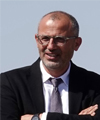
ASSOC. PROF. DR. HASAN YILMAZYAŞAR
Assoc. Prof. Dr. Hasan YILMAZYAŞAR graduated from the Department of Art History of the Faculty of Letters of Anadolu University in 1997; and completed his master’s thesis titled “City of Iznik and its architecture during the reign of Orhan Gazi” at the Department of Art History of the Graduate School of Social Sciences of Hacettepe University in 2003. In 2017, he received his doctorate degree at Anadolu University with his thesis titled “Bursa to Kosova: Ottoman Architecture in the period of Hudavendigar (Murad I)”. Yılmazyaşar, who became a research assistant at the Department of Art History of the Faculty of Letters of Anadolu University in 1999 and worked as a research/teaching assistant at Hacettepe and Anadolu Universities, currently serves as a faculty member at the Department of Art History of the Faculty of Letters of Anadolu University. Assoc. Prof. Dr. Hasan Yılmazyaşar has studies and publications on the history of architecture, Ottoman architecture, Ottoman archaeology, numismatics, ceramic art, and cultural interactions of the medieval period. Yılmazyaşar, a member of the Cultural Heritage Preservation Board, has taken part in numerous national and international archaeological excavations and researches since 1993 and currently serves as the Head of Eskişehir Karacahisar Castle Excavation.
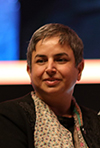
Prof. Dr. Hatice ORUÇ graduated from the History Department of the Faculty of Languages and History-Geography at Ankara University in 1994. She was appointed as a research assistant in the same year. She completed her MA in the History Department of the Institute of Social Sciences at Ankara University in 1997 and her PhD in the History Department of the Faculty of Philosophy (Filozofski Fakultet Univerziteta u Sarajevu) at the University of Sarajevo in Bosnia and Herzegovina in 2003. Her studies are focused on Balkan history and she has various publications in this field. She is currently a professor in the History Department of the Faculty of Languages and History-Geography at Ankara University.

PROF. DR. HİKMET ÖKSÜZ
Prof. Dr. Hikmet ÖKSÜZ was born in 1965 in the Çaykara district of Trabzon. He completed his primary education in Çaykara and his secondary education in Trabzon. In 1987, he graduated from the History Teaching Program at the Fatih Faculty of Education, Karadeniz Technical University. Between 1987 and 1995, he served as a history teacher at Istanbul Kartal High School. He obtained his Master’s degree in 1992 from the Atatürk Principles and Revolutionary History Institute at Istanbul University, with a thesis titled “The Western Thrace Problem in the Lausanne Treaty.” He earned his PhD in 1996 from the same institute, with a dissertation on “Turkish Republic`s Balkan policy in the time of Atatürk (1923-1938).” Since 1995, Prof. Dr. ÖKSÜZ has been a faculty member in the History Department of the Faculty of Arts and Sciences at Karadeniz Technical University. He was promoted to assistant professor in 1999, associate professor in 2003, and professor in 2008.
His scientific fields of study are the Balkans in the 20th century, the Armenian Question and Trabzon in the Republican Period. In addition to 12 published books and 10 book editorships, he has around 160 publications in his fields of study, including book chapters, papers and articles.
In addition to his academic studies, ÖKSÜZ also undertook administrative duties. He served as the head of the Atatürk Principles and Revolution History Department between 2004 and 2010, as the founding director of the Black Sea Research Institute in 2010, and as the founding dean of the Faculty of Letters between 2010 and 2012. He served as vice rector at Karadeniz Technical University between 2012 and 2020. He is married and has three children.

Prof. Dr. Hüseyin ÇINAR completed his undergraduate education at the Department of History Teaching of the Gazi University, Gazi Faculty of Education in 1987; his postgraduate education at the Department of General Turkish History of Graduate School of social Sciences of the same university in 1993; and his doctorate at the Department of Late Modern History of the Institute of Social Sciences of Istanbul University in 2000 with a thesis titled “The social and economic pozition of Ayıntab city in the first half 18th century”. He worked as a research assistant, assistant professor, and associate professor at the Department of Early Modern History of the History Department of the Faculty of Arts and Sciences of Kırıkkale University between 1993 and 2011. In 2011, he transferred to the Department of History of the Faculty of Humanities and Social Sciences of Ankara Yıldırım Beyazıt University. He has been working as a professor at the same university since 2013. Çınar’s studies mostly focus on topics such as Ottoman Social and Economic History, Ottoman cities, and foundations.
Some of his works: Vakıflar Kaynakçası, Osmanlıdan Cumhuriyete Çubuk Kazası, 1842 Tarihli Çubuk Kazası Nüfus Defteri.
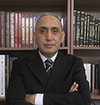
Prof. Dr. İbrahim TELLİOĞLU is an expert in General Turkish History. In 2002, he completed his thesis titled “Osmanlı Hâkimiyetine Kadar Doğu Karadeniz Bölgesinde Türkler” under the supervision of Prof. Dr. Salim CÖHCE in the History Department of İnönü University, Institute of Social Sciences and received the title of doctor in philosophia. İbrahim TELLİOĞLU, who became an associate professor in the field of General Turkish History on 06.04.2006 and was appointed as a professor in the same department on 28.07.2011, currently works as an academician in the History Department of the Faculty of Arts and Sciences at Ondokuz Mayıs University. In addition to his books, Osmanlı Hâkimiyetine Kadar Doğu Karadeniz’de Türkler (Trabzon 2006), XI-XIII. Yüzyıllarda Türk-Gürcü İlişkileri (Trabzon 2009), Trabzon Rum Devleti (1204-1461) (Trabzon 2009), İlk Çağdan Osmanlılara Samsun (Samsun 2013), Türk-Ermeni İlişkileri ve 1915 Olayları (Trabzon 2015), Tarih Boyunca Karadeniz (Trabzon 2015), Orta Çağda Türkler Ermeniler Gürcüler (İstanbul 2019) and Fethedilenlerin Gözüyle Anadolu’nun Fethi (İstanbul 2020), he has numerous published articles and papers, especially on the history of the Black Sea and the Caucasus. He also edited the books such as Türk-Gürcü İlişkileri: Tarih ve Çağdaşlık (Trabzon 2017), Türk-Gürcü İlişkilerinin Kaynakları (Trabzon 2018), Tarih Boyunca Çarşamba (Samsun 2019), Orta Çağda Türk-Gürcü İlişkileri (Gori-2019) ve Yeni ve Yakın Çağda Türk-Gürcü İlişkileri (Trabzon 2020), Kafkasya’da Barış Arayışları (Gori 2021), Tarih Boyunca Tekkeköy (Trabzon 2021). His book -Fethedilenlerin Gözüyle Anadolu’nun Fethi- was deemed worthy of the 2020 Review Work of the Year Award by Writers Union of Türkiye.

Prof. Dr. İhsan FAZLIOĞLU graduated from the Department of Philosophy, Faculty of Letters, Istanbul University in 1989. He completed his MA in History of Science at the Institute of Social Sciences, Istanbul University (1993), and his PhD in Philosophy (1998). He worked as a research assistant in the Department of History of Science, Faculty of Letters, Istanbul University, and as a research assistant and associate professor in the Department of Philosophy. Since 2011, he has been a faculty member in the Departments of Philosophy and History of Science at Istanbul Medeniyet University. He worked in the Department of Manuscripts, IRCICA (Istanbul). He conducted research in his field at the University of Jordan (Amman), the Institute for The History of Arabic Science (Aleppo), and Cairo University. He conducted his postdoctoral studies at the University of Oklahoma. He was a visiting professor at the Institute of Islamic Studies, McGill University; he worked as a consultant for the project titled “Rational Sciences in Islam” and as a senior researcher. He has participated in meetings, workshops and seminars in many countries related to his field. Focusing on the history of philosophy and science, history of mathematics and philosophy, Fazlıoğlu examines and publishes the developments of these subjects in the history of Islamic-Seljuk-Ottoman Turkish civilization based on manuscripts. In this context, he has published many articles, book chapters, encyclopedia articles and books. Some of these are: (Kayıp Halka, Derin Yapı, Nazarî Ufuk, Uygulamalı Geometri’nin Tarihine Giriş, Aded ile Mikdâr, Fuzulî Ne Demek İstedi?)

Prof. Dr. İlber ORTAYLI graduated from the History Department of the Faculty of Languages and History-Geography at Ankara University in 1970. He studied Slavic and Eastern European languages at the University of Vienna. He did his master’s degree with Prof. Dr. Halil İnalcık at the University of Chicago. He recieved his PhD degree at Ankara University, Faculty of Political Sciences in 1974 with his thesis titled “Tanzimat Sonrası Mahallî Idareler” and became an associate professor at the same faculty in 1979 with his study titled “Osmanlı İmparatorluğu’nda Alman nüfuzu”. He became a professor in 1989 and worked at Ankara University, Faculty of Political Sciences between 1989 and 2002. He transferred to Galatasaray University in 2002, and two years later to Bilkent University as a visiting professor. He currently teaches Turkish Legal History at MEF University, Faculty of Law. Ortaylı, who also worked as the Director of the Topkapı Palace Museum between 2005 and 2012, is a member of the Board of Directors of the International Committee of Ottoman Studies, the European Iranology Society, and the Austrian-Turkish Forum of Sciences.
His main works are: Gelenekten Geleceğe, Osmanlı Toplumunda Aile, İmparatorluğun En Uzun Yüzyılı, Türkiye’nin Yakın Tarihi, Defterimden Portreler, Tarihin Gölgesinde, Yakın Tarihin Gerçekleri, Cumhuriyetin İlk Yüzyılı, İlber Ortaylı Seyahatnamesi, Hukuk ve İdare Adamı Olarak Osmanlı Devleti’nde Kadı, Osmanlı’ya Bakmak Osmanlı Çağdaşlaşması, Gazi Mustafa Kemal Atatürk, Bir Ömür Nasıl Yaşanır?

ASSOC. PROF. DR. İLKER YİĞİT
Assoc. Prof. Dr. İlker YİĞİT completed his undergraduate studies at the Department of Geography, Faculty of Arts and Sciences, Afyon Kocatepe University, graduating in 2008. He earned his Master’s degree in 2011 from the same university’s Department of Geography, Institute of Social Sciences, with a thesis titled “Human and Economic Geography of Beyşehir in the 19th Century According to Temettuat Registers.” In 2018, he completed his PhD at Afyon Kocatepe University, with a dissertation titled “In XVI-XX. centuries the lost settlements in Anatolia: The sample of Manisa-Konya.” Dr. Yiğit served as a research assistant in the Department of Geography at the Faculty of Arts and Sciences, Çankırı Karatekin University, from 2009 to 2018. He then worked as a faculty member in the Department of Geography at the Faculty of Arts and Sciences, Burdur Mehmet Akif Ersoy University, from 2018 to 2024. In 2024, he transferred to the Department of Geography at the Faculty of Humanities and Social Sciences, Marmara University, where he continues his research in the fields of historical geography and historical geographic information systems.

PROF. DR. KAYHAN ORBAY
Prof. Dr. Kayhan ORBAY is a faculty member in the Department of History at Middle East Technical University. He graduated from the Department of Economics, Faculty of Political Sciences, Ankara University, in 1995. In 2001, he obtained his master’s degree in history from Bilkent University, with a thesis titled “The Financial Administration of an Imperial Waqf in an Age of Crisis: A Case Study of Bayezid II’s Waqf in Amasya (1594-1657).” Prof. Dr. Orbay earned a second master’s degree in 2011 from the Department of Economics, Faculty of Political Sciences, Ankara University, with a thesis on “The Ottoman Çift-Hane System.” He completed his PhD at the Department of Turcology, University of Vienna, in 2007, with a dissertation titled “Economic Development of the Imperial Waqfs: A Study in Institutional and Local Economic History in the Transformation Period.” In 2007-2008, Prof. Dr. Orbay conducted postdoctoral research within the ANAMED program. He taught part-time courses in the METU History Department during the 2009-2010 academic year and was appointed as an assistant professor in 2011. He was promoted to associate professor in economic history in 2012 and to associate professor in modern history in 2013. Since 2020, he has held the rank of professor. He became a member of the Scientific Board of the Turkish Historical Society in November 2024. His research interests encompass Ottoman economic history in the 16th and 17th centuries, the general crisis thesis of the 17th century, the Celali rebellions and their socio-economic effects, the history of prices, accounting history, and çift-hane system.

Prof. Dr. LEVENT KAYAPINAR
Prof. Dr. LEVENT KAYAPINAR was born in 1966 in Ankara. He completed his undergraduate education at the History Department of the Faculty of Language, History and Geography at Ankara University between 1985-1989. He worked as a research assistant in the same department between 1990-2003. He completed his master’s degree in 1993 at the Department of Medieval History of the Institute of Social Sciences at Ankara University with his thesis titled “Evaluation of the Letters of Byzantine Emperor Manuel II Palaiologos as Historical Sources (1389-1402)”. He completed his doctorate in the same department between 1993-1999 with his thesis titled “The History of Peloponnesus (Morea) in the Ottoman classical age”. He attended Greek courses at the Faculty of Philology at the University of Athens, where he went on duty during the 1991-1992 academic year. In the 1994-1995 academic year, he was a state scholarship holder at the Faculty of Letters at the University of Athens to conduct research. In 2001, he went to Athens for a postdoctoral study. In 2003, Dr. Levent KAYAPINAR was appointed as an assistant professor to the History Department of the Faculty of Arts and Sciences at Abant İzzet Baysal University and received the title of associate professor in 2006 in the field of Modern and Contemporary History. In 2012, he was appointed as a professor to the History Department of the Faculty of Arts and Sciences at Abant İzzet Baysal University. In 2014, he was appointed as a professor to the Medieval Department of the History Department of the Faculty of Social and Human Sciences at İzmir Kâtip Çelebi University and served as the department head. In October 2017, he was appointed as a professor to the Medieval History Department of the History Department of Tekirdağ Namık Kemal University. As of December 2018, he was appointed as a professor to the Department of Contemporary Greek Language and Literature of the Department of Western Languages of the Faculty of Language, History and Geography at Ankara University and served as the Head of the Department of Contemporary Greek Language and Literature. He served as Dean of the Faculty of Language, History and Geography between 17.10.2020 and 11.11.2024. Prof. Dr. Levent KAYAPINAR speaks English and Greek. He has numerous articles and books in Turkish, English, Bulgarian and Greek on the Ottoman Period Balkan History, Byzantine and Greek history and Ottoman raider families.

Prof. Dr. Mahmud Erol KILIÇ graduated from Istanbul University, Faculty of Political Sciences (1985). He gave lectures at Marmara University and Üsküdar University Institute for Sufi Studies. He has published 16 copyrighted, 5 translated books and 2 books that he edited. His work titled Sufi ve Şiir: Osmanlı Tasavvuf Şiirinin Poetikası was deemed worthy of the 2004 study-research award by the Writers Union of Türkiye. He was a member of the Editorial Board of the Journal of Sufi Studies (BRILL, Leiden), a member of the General Assembly of the UNESCO Turkish National Commission, an Honorary Member of the Muhyiddin Ibn Arabi Society (MIAS – Oxford), and a member of the Advisory Board of the Journal of Turkish-Iranian Studies (TİAD). He served as the President of the Museum of Turkish and Islamic Arts (TİEM) between 2005 and 2008, the Secretary General of the Parliamentary Union of the OIC Member States (PUIC, Tehran) between 2008 and 2018, and the Ambassador of the Republic of Türkiye to Indonesia between 2019 and 2021. Since May 2021, he has been the Director General of the Research Centre for Islamic History, Art and Culture (IRCICA) affiliated with the Organisation of Islamic Cooperation (OIC).

Prof. Dr. Mahmut AK graduated from the History Department of the Faculty of Letters at Istanbul University in 1987. The same year, he became a research assistant in the Department of Early Modern History of this faculty and started his master’s degree. He completed his thesis titled “Aşık Mehmed ve Menazırü’l-avalim’i” in 1990. He entered the doctoral program at the same year and received his doctorate in 1997 with his thesis titled “Menazırü’l-avalim (Tahlil-Metin).” He was appointed assistant professor in the Department of Early Modern History in 1999, associate professor in the Department of Early Modern History in 2006, and professor in the Department of Early Modern History in 2011. Prof. Dr. Mahmut Ak, who has held many administrative positions, has been the Rector of Istanbul University since 2015.
Some of his works: Menâzirü’l-Avâlim: Tahlil-Dizin-Metin (I-II-III), Osmanlı’nın Gezginleri, İstanbul’un Fetih Günlüğü.

Prof. Dr. M. Âkif AYDIN graduated from Istanbul Higher Islamic Institute in 1971 and from Istanbul University, Faculty of Law in 1974. He completed his doctorate at the History Department of Istanbul University, Faculty of Letters with his thesis “Osmanlı Aile Hukukundaki Gelişmeler ve Hukuk-ı Aile Kararnamesi.” In 1983, he was appointed assistant professor in the Department of Legal History at Marmara University, Faculty of Law. He became an associate professor in 1987 with his thesis “Mecelle’de Haksız Fiiller,” and a professor in 1993. He was a visiting scholar at Cairo Faculty of Law and Harvard University Faculty of Law for one year. He served as the President of the Center for Islamic Studies (ISAM) between 2003-2014, a member of the Council of Higher Education (YÖK) between 2009-2013, and Dean of Medipol University Faculty of Law between 2011-2020. He is currently a faculty member and the Director of the Application and Research Center for Legal History at the same university. He was the project director of the 100-volume Istanbul Kadi Registers published with the joint support of ISAM-2010 Istanbul Capital of Culture and Medipol University – IMM.
Some of his works are: Osmanlı Aile Hukuku, Osmanlı Devleti’nde Hukuk ve Adalet, Türk Hukuk Tarihi, Kadı Sicillerinde İstanbul, Osmanlı Hukuku Devleti Aliyye’nin Temeli.

Prof. Dr. Mehmet Akif KİREÇCİ received his PhD from the Department of Near Eastern Studies at the University of Pennsylvania in the USA with his thesis titled “Decline, Discourse and Self-Orientalization.” Kireçci, who taught at the same university, also worked as a fellow at the Stevens Institute of Technology. After working at Bilkent University for a while, Kireçci joined the Department of International Relations at the Social Sciences University of Ankara as a faculty member in 2019 and is currently working at this university. Kireçci writes books on Turkish foreign policy, Far Eastern studies, and international security strategies.
Some of his works are: İstanbul: Metamorphosis in an Imperial City, Arap Baharı ve Türkiye Modeli Tartışmaları, Türk Cumhuriyetlerinde Bağımsızlık ve Devlet İnşa Süreci, Başlangıçtan Günümüze Arap Milliyetçiliği, 2023’e Doğru Kültür Politikaları.
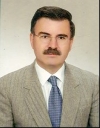
Prof. Dr. Mehmet Ali ÜNAL was born in 1958 in the Buldan district of Denizli province. He completed primary school in Buldan, secondary school and high school in Denizli. He graduated from the Department of General Turkish History at Ankara University, Faculty of Languages and History-Geography in 1980. He completed his master’s degree at Ankara University, Graduate School of Social Sciences in 1984. He started working as a research assistant at Fırat University in 1983. He received his doctorate with his thesis titled “XVI. Yüzyılda Harput Sancağı” at Fırat University, Graduate Institute for Social Sciences in 1987. He was appointed as an assistant professor at Ondokuz Mayıs University, Faculty of Education in 1987. He became an associate professor at the Department of Early Modern History at the same university in 1989. He was appointed to the Department of History at Süleyman Demirel University, Faculty of Arts and Sciences in 1993. In 1995, he became a professor in the Department of Early Modern History at the same university. He worked at Trakya University between 2001-2004. Currently a faculty member at the Department of History at the Faculty of Humanities and Social Sciences at Pamukkale University, Prof. Dr. Mehmet Ali Ünal has 14 published books and more than 100 scientific publications consisting of book chapters, articles and reports. He is married with 3 children.
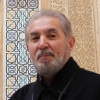
Prof. Dr. Mehmet ÖZDEMİR completed his undergraduate education at Ankara University, Faculty of Theology in 1982. He received his doctorate degree by presenting his thesis titled “Endülüs’te Muvelledûn Hareketleri (180-320/ 796-932)” within the Graduate School of Social Sciences of the same university. He became an associate professor in 1993 and a professor in 2000. He started working as a research assistant in the Department of Islamic History (1983) at Ankara University, Faculty of Theology, and held various administrative positions in addition to his teaching position. He conducted research in Egypt for 9 months in 1985, in Spain for 1 year in 1987, and in England for 10 months in 2005. In 2010, he gave lectures on the main theme of “Experience of Living Together in Andalusian Civilization” at the Pontifical Gregorian University (Rome-Italy). Between 2015 and 2018, he taught Turkish History and Culture (Historia y cultura turcas) for four semesters at Universidad Nacional in Bogota, the capital of Colombia, within the scope of the Mevlana Program. He was a project manager in the project titled “Türkiye’de Dinî Araştırmalar ve İlâhiyat Fakültesi” (Ankara University, 2005-2008), and an editor – researcher in the projects titled “İngiliz ve Alman Oryantalizminde Siyer Çalışmalarının, Türklerin ve Avrupa Birliği Halklarının Hz. Muhammed Algısına Etkileri” (together with Prof. Dr. Seyfettin Erşahin and Prof. Dr. İbrahim Sarıçam, TÜBİTAK, 2009) and “Tarihte Müslümanlar” (8 Volumes). His scientific and academic studies focused on the field of early Islamic history, especially the history of Andalusia. He has authored works including books, articles, papers and encyclopedia entries, focusing on the history of Andalusia and the biography of Prophet Muhammad. He speaks Arabic, Spanish and English. He currently continues to work as a faculty member in the Department of Islamic History at Ankara University, Faculty of Theology.
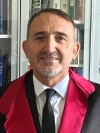
Prof. Dr. Musa KADIOĞLU completed his undergraduate studies at Ankara University, Faculty of Languages and History-Geography, Department of Classical Archaeology in 1994 and his postgraduate studies at Ankara University, Graduate School of Social Sciences, Department of Classical Archaeology in 1997. He received his doctorate degree in 2002 with his thesis titled “Die Scaenae Frons des Theaters von Nysa am Maeander”, which he completed under the supervision of Prof. Dr. V. M. Strocka at the Institute of Archaeology, Albert Ludwig University of Freiburg, Germany. With this thesis, he was awarded the Günter-Wöhrle Achievement Award by the state foundation Humanismus Heute in 2002, and with the book of the same thesis published in 2006 (Die Scaenae Frons des Theaters von Nysa am Mäander, Forschungen in Nysa am Mäander I), he was deemed worthy of the Incentive Award of the Turkish Academy of Sciences (TÜBA) in 2007. He continued his scientific studies in Freiburg, Oxford and Philadelphia with research grants from the German Academic Exchange Service (DAAD) in 1998, from the Albert Ludwig University of Freiburg in 2000-2001, from The American Research Institute in Turkey (ARIT) in 2010, from the Alexander von Humboldt Foundation in 2012 and from the Scientific and Technological Research Council of Türkiye (TÜBİTAK) in 2021. Since 2010, he has been the head of the archaeological studies carried out at the ancient city of Teos in the Seferihisar district of Izmir on behalf of Ankara University and the Ministry of Culture and Tourism of the Republic of Türkiye. His studies have focused on Ancient Greek and Roman Architecture, Architectural Decoration and Sculpture of the Anatolian Roman Imperial Period and the ancient cities of Menderes Nysa (Sultanhisar), Ankyra (Ankara) and Teos (Seferihisar/Sığacık). Kadıoğlu started working as an assistant in the Department of Archaeology, Faculty of Languages and History-Geography, Ankara University, in 1995 and has been working as a professor in the same department since 2011. He became a member of the Scientific Board of the Turkish Historical Society in November 2023.

Prof. Dr. Mustafa H. SAYAR received his undergraduate education at Istanbul University, Faculty of Letters, Departments of Classical Languages, Classical Archaeology and Ancient History between 1974 and 1978. He worked as a museum assistant at the Istanbul Archaeological Museums between 1979 and 1986. In 1989, he received his doctorate from the University of Vienna with his thesis “Perinthos-Herakleia (Marmara Ereğlisi) und Umgebung”. Sayar became an associate professor in Ancient History in 1993 and a professor in the Department of Ancient History at Istanbul University, Faculty of Letters in 2003. He participated as a team member in various archaeological excavations in Türkiye and abroad between 1978-2021. Between 1990 and 2012, he directed surface surveys on Ancient Historical Geography and Settlement Archaeology in Thrace and Çukurova, Central and Eastern Taurus Mountains. He gave conferences on Ancient History, Ancient Monuments and Ancient History-Geography of Thrace and Çukurova regions both domestically and internationally., participated in meetings, workshops and seminars, and organized various national and international symposiums and workshops in his field. With a scholarship from the Alexander von Humboldt Foundation, he conducted publications on the Ancient Inscriptions of Çukurova at the Department of Ancient History, of the Universität Zu Köln. In this context, in addition to his articles published in various international scientific journals, he published the Ancient Inscriptions of Anazarbos, one of the ancient cities of Çukurova, as a book in Bonn in 2000. Between 1999 and 2002, as part of a scientific research project at the Department of Archaeology, University of Bonn, to examine the cultural development process of ancient settlement archaeology in Çukurova, he prepared a book on the mutual interactions of ancient cultures in the Çukurova region with scientists from the Universities of Bonn, Duisburg and Munich. The book was published in Bonn in 2004. In the spring semester of 2013, he conducted scientific studies in the field for 3 months at the center of the German Archaeological Institute in Berlin with a scholarship from the Alexander von Humboldt Foundation. In the spring semester of 2016, he worked on publications at the Institute for Advanced Studies in Princeton. In the fall semester of 2017, he taught as a visiting professor at the University of Eichstätt in Federal Germany. Sayar, who has been a member of the Ernst Kirsten Gesellschaft /International Society for Historical Geography of the Ancient World since 1990, has served as Vice President since 2014, and is a member of the editorial boards of Epigraphica Anatolica published in Bonn, Orbis Terrarum published in Stuttgart, and Archaeologica Bulgarica published in Sofia. Sayar has been Professor of Ancient History at the History Department, Faculty of Letters, Istanbul University since 2003, and has been the Director of the Research Center for Southeast European Studies, Faculty of Letters, Istanbul University since 2006, and the editor of the Journal of Anatolian Research and Journal of Southeastern European Studies at Istanbul University. Sayar became a member of the Turkish Institute of Archaeology in 2002, a Corresponding Member of the German Archaeological Institute in 2005, and a member of the Turkish National Committee of the ICOMOS International Council on Monuments and Sites since 2004. Since 2020, he has been the Turkish member of the ICOFORT Committee on Fortifications and Military Heritage, the international scientific committee of ICOMOS.

Prof. Dr. Necdet HAYTA completed his undergraduate education at Gazi University in 1986 and his master’s degree at Ankara University in 1990. He completed his doctorate at Ankara University in 1993 with the thesis “The Aegean Island Question (1911-1923)”. He started working as a research assistant at the History Department of the Faculty of Arts and Sciences at Yüzüncü Yıl University. He then served as a research assistant, assistant professor, associate professor and professor at the Department of Turkish and Social Sciences Education at Gazi Faculty of Education, Gazi University. He conducts studies on Modernization History, Balkan History and Ottoman History.
Some of his Works are as follows: 1911’den Günümüze Ege Adaları Sorunu, Tarih Araştırmalarına Kaynak Olarak Tasvîr-i Efkâr Gazetesi (1278/1862-1286/1869), Balkan Savaşlarının Diplomatik Boyutu ve Londra Büyükelçiler Konferansı 17 Aralık 1912-11 Ağustos 1913, Tarih Araştırmalarına Kaynak Olarak Tasvir- i Efkâr Gazetesi 1278/1862, 1286/1869.
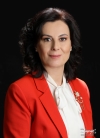
Prof. Dr. Nejla GÜNAY was born in Kahramanmaraş. She graduated from Gazi University, Department of Social Sciences Education, History Department in 1989. She completed her master’s degree in 1999 with her thesis titled “Bursa Jews in the XVI th century ” and her doctorate in 2007 with her thesis titled “Armenians of Marash (19th Century)”. Nejla Günay, who received the title of associate professor in 2011 and professor in 2018, has written numerous scientific books and articles. Most of these studies focus on Ottoman and Russian Armenians. Nejla Günay has prepared articles and papers on the subjects of CUP and Armenians, relations with the Dashnaktsutyun Society, and Ottoman-Russian and Ottoman-British relations around the axis of Azerbaijan and Armenians. Prof. Dr. Günay has published numerous articles and presented papers on the subjects of the Armenians of Maraş and Zeytun, Ahıska Turks, the migration of Muslims to Anatolia, the structure of Ottoman society, the National Struggle and the history of sports. Nejla Günay prepared her work titled “Zoraki İttifaktan Yol Ayrımına İttihat Terakki ve Ermeniler” as her professorial thesis, which was published in 2015. The second edition of this book was published in 2020. Nejla Günay’s other books include “XVI. Yüzyılda Bursa Yahudileri” (2005), “100. Yılında 1909 Maraş Ermeni Olayları” (2009), “Gediz Bibliyografyası” (1999), “Osmanlı Toplum Yapısı ve Millet Sistemi” (2020), in which she wrote and edited chapters, and “Millî Mücadelenin Güney Cepheleri (1st edition 2021-2nd edition 2022), “Gazi Terbiye Enstitüsünden Gazi Üniversitesine” (2018), “Aşiretler, Muhacirler, Mübadiller ve Mültecilerin İskânı” (2021). Günay is the coordinator of the 4th volume of the “Millî Mücadeleye Yerel Bakışlar” (2023) series carried out by Turkish Academy of Sciences and FSM Vakıf University, including the Southern Fronts section, and also the monograph writer of the Maraş, Adana, Mersin, and Osmaniye chapters. Prof. Günay has served as editor or field editor for the Journal of Gazi Educational Faculty, Gazi Academic Overview, and Türkiye Günlüğü journal. Nejla Günay was the head of the Department of the Principles of Atatürk and the History of the Revolution at Gazi University between 2016 and 2019. Married with three children, Nejla Günay is currently a faculty member at the Department of History Education at Gazi University, Faculty of Education.

ASST. PROF. NURCAN BOŞDURMAZ
Assistant Professor Nurcan BOŞDURMAZ graduated from Boğaziçi University, Department of Turkish Language and Literature in 1998. She completed her master’s degree in the same department in 2000 with a thesis titled “Aşkî Divanı: İnceleme-metin”, and the thesis was expanded and published as Aşkî Divanı in 2012. She completed her doctoral studies at the Department of Art History at Istanbul Technical University in 2010 with a thesis titled “Bosna-Hersek Osmanlı Dönemi Müslüman Mezar Taşları”. In 2011, her doctoral thesis was published under the title “Bosna-Hersek Mezar Taşları”. In 2012, she prepared Tahirü’l Mevlevi’s “İstiklâl Mahkemeleri Hatıraları” for publication. In 2021, her work titled “İpek Yolunda Bir Şehir Tokat – Dokumacılık ve Bakırcılık Tarihi-“was published. Asst. Prof. Nurcan Boşdurmaz has mostly studies and articles related to art history. Her areas of interest include the textile history of Anatolia during the Ottoman period, iconography in miniatures, and tombstones. She has been working at the Department of General Education at Istanbul Bilgi University since 1998.

Prof. Dr. Osman Gazi ÖZGÜDENLİ was born in Kayseri in 1973. He graduated from Marmara University, Atatürk Faculty of Education, Department of History in 1992. He was appointed as a Research Assistant to the same department (1993). He completed his Master’s degree with his work titled “Sultan Sencer ve Kara-hitâylar -Katavân Savaşı (536/1141)”- (1994). He was in Iran between 1995-1997 to conduct research on his doctoral thesis. He conducted research on sources and documents related to medieval Turkish history in Tehran, Mashhad, Qom, Isfahan, Tabriz and Erdebil in 1995-1997, 1998, 2001, 2003, 2004 and 2005. He completed his doctorate with his work titled “Gazan Han ve Reformları (694-703/1295-1304)” (2000). He was a visiting professor at the University of Berlin upon the invitation of the Institut für Islamwissenschaft (2005-2007). He conducted research on Islamic manuscripts in London, Oxford and Cambridge (2009, 2011-2012). His research focuses on various topics and issues related to Seljuk history, Ilkhanate history, Islamic manuscripts, Islamic numismatics, Turkish-Iranian cultural relations and the course of Turkish history in the Iranian geography.
Özgüdenli has written numerous articles for Encyclopaedia Iranica (New York), Encyclopaedia of Islam, Three Edition (Leiden), Dȃ’iretu’l-Ma‘ȃrif-i Bozorg-i İslȃmî (Tehran), Dȃniş-nȃme-yi Cihȃn-i İslȃm (Tehran) and Türkiye Diyanet Vakfı İslȃm Ansiklopedisi (Istanbul). His main works can be listed as follows: Turco-Iranica: Ortaçağ Türk-İran Tarihi Araştırmaları (İstanbul 2006); Moğol İranında Gelenek ve Değişim: Gazan Han ve Reformları (1295-1304) (İstanbul 2009); Selçuklular, I: Büyük Selçuklu Devleti Tarihi (1040-1157) (İstanbul 2013); İrȃn der-‘asr-i Selcûkiyyȃn [Selçuklular Zamanında İran], Cȃmi‘-yi Tȃrîh-i İrȃn, VIII, Tahran 1393/2015); Ortaçağ’da Türkler, Moğollar, İranlılar (Kaynaklar ve Araştırmalar), (İstanbul 2020).He currently works at the Marmara University Institute of Turkic Studies.

Assoc. Prof. Dr. Sefer SOLMAZ graduated from Ankara University, Faculty of Languages and History-Geography, Department of History in 1990. In 1993, he completed his MA in the Department of Medieval History of the Department of History of the Institute of Social Sciences, Selçuk University with his thesis titled “Halîfet Gazi ve Halîfet-zâdeler”. In 1992, he started working as a History Teacher in secondary education. In 1994, he was appointed as a research assistant in the Department of Medieval History of the Faculty of Arts and Sciences, Selçuk University. In 2001, he completed his PhD in the Department of Medieval History of the Institute of Social Sciences, Selçuk University with his thesis titled “Danişmendliler Devleti ve Kültürel Mirasları”. Since 1996, he started teaching courses in the fields of Pre-Islamic Turkish History and Medieval Turkish-Islamic History as a lecturer and became an assistant professor in the Department of General Turkish History in 2010. In 2012, he went to London with a CoHE scholarship, and conducted research at the School of Oriental and African Studies (SOAS) Library and the British Library. He undertook administrative duties at Selçuk University, such as Deputy Director of the Seljuk Studies Center (2016-2020), Deputy Director of the Institute of Social Sciences and Editor of the Journal of Selcuk University Social Sciences Institute (SUSBED) (2017-2020), Deputy Head of the Department of History (2017-2020), Coordinator of Student Societies (2020-2021), Director of the Institute of Turkic Studies (2020-present). He became an associate professor in the Department of Medieval History in 2020. He took part in scientific meetings such as “II. Uluslararası Selçuklu Kültür ve Medeniyeti Selçuklularda Bilim ve Düşünce Sempozyumu” (2011), “Uluslararası Selçuklular ve Haçlılar Sempozyumu” (2016), “Uluslararası Selçuklu Tarihi ve Tarihçiliğinin Temel Meseleleri” (2019), “Uluslararası Anadolu’nun İrfan Çağı (XIII-XIV. Yüzyıllar) Sempozyumu” (2021) as a member of the organizing committee and editor. He also served as a “researcher” in the Turkish Sultans/Great Seljuk R&D Project (2021), “volume editor (volume project manager) and researcher” in the Turkish Seljuk Sultans Collection (Sultanate Periods and their Introduction to the Academic Field) Publication R&D Project (2022), and “project manager and researcher” in the Turkish Seljuk Sultans R&D Project (2023). He is working on the subjects of Seljuks, Muslim Turkish States, First Turkish Anatolian Principalities and has various books, articles, reports and encyclopedia entries on these subjects.
Some of his works are: İbn Fazlan Seyahatnâmesine Göre İtil Bulgarları, Sultan Sencer, Sultan I. Kılıç Arslan.
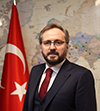
Assoc. Prof. Dr. Selim ARGUN, who started his undergraduate education at Selçuk University Faculty of Theology, voluntarily took a break and went to Islamic University of Medinah and graduated from the Faculty of Da’wah and Usul al-Din of this university with an honorary degree. He completed his master’s degree at the University of Johannesburg in the Republic of South Africa. With his thesis titled “Abu Bakr Efendi’s Contributions to Islamic Thought and Culture in South Africa” (Abu Bakr Efendi was a fiqh scholar sent to Cape Town by the Ottoman State in the second half of the nineteenth century), he received an Honorary Degree. He completed his PhD at McGill University in Montréal, Canada, with the title “Elite configurations and clusters of power: The ulema, waqf, and Ottoman state (1789-1839)”. During his doctorate, he lectured at the Institute of Islamic Sciences of the same university. After many years abroad, he returned to Türkiye in 2013 and started working at the Department of Islamic History at Faculty of Theology, Istanbul University. As of June 13, 2017, he was appointed as the General Director of Foreign Relations at the Presidency of Religious Affairs, and as the Vice President of Religious Affairs on October 4, 2017. In addition to his position as the Vice President responsible for foreign relations, he currently teaches part-time at the Institute of Islamic Studies at Ankara Social Sciences University. Argun continues his scholarly studies on Islamic History, the Institution of Waqf, Religious Diplomacy, the Ottoman Ulama Class and Islam in Africa.
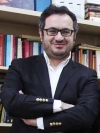
Prof. Dr. Selim KARAHASANOĞLU graduated from Hacettepe University, Faculty of Letters, Department of History in 2001. He received his MA from Middle East Technical University, Faculty of Arts and Sciences, Department of History in 2004. He received his doctorate from the Department of History at the State University of New York-Binghamton in 2009. He became an associate professor in 2013 and a professor in 2019. He currently serves as Dean of the Faculty of Letters at İstanbul Medeniyet University. In 2016, he was awarded the Outstanding Young Scientist Award (TÜBA-GEBİP) by the Turkish Academy of Sciences. As a The Scientific and Technological Research Council of Türkiye (TÜBİTAK) and Alexander von Humboldt fellow, he spent two years at the Berlin Freie University Institute for Turkology as a researcher-visiting scholar. He has studies on the eighteenth century, consumption, material culture, and self-narratives. He gave/is giving part-time lectures at Maltepe and Istanbul Bilgi Universities.
Some of his works are: Politics and Governance in the Ottoman Empire, Kadı ve Günlüğü, Küçükköy Taşlıtarla Gaziosmanpaşa, History from Below.

PROF. DR. TURHAN KAÇAR
Prof. Dr. Turhan KAÇAR completed his PhD at Swansea University in 2000. He became an associate professor at Balıkesir University in 2004 and a professor at Pamukkale University in 2009. His main field of study is the political and religious history of the Late Antique world. In this context, he has authored the source review titled Valesius Seçkileri (Valesius Selections) (Istanbul, 2008), which presents the life stories of Emperor Constantine and the Ostrogothic King Theodericus, as well as the printed book Geç Antikçağ’da Hıristiyanlık, Doğu’da İsa Teolojisinin Siyasi ve Entelektüel Tarihi (Christianity in Late Antiquity, the Political and Intellectual History of Jesus Theology in the East) (Istanbul, 2009). His notable translation works include Geç Antikçağ Dünyası (the World of Late Antiquity) (Istanbul, 2000, 2016, 2020), Geç Roma İmparatorluğu Tarihi (History of the Late Roman Empire) (Ankara, 2016, 2020) and Attila Hunlar ve Roma İmparatorluğu’nun Çöküşü (Attila the Huns and the Collapse of the Roman Empire) (Istanbul, 2011, 2016). His other works include Byzantion’dan Constantinopolis’e İstanbul Kuşatmaları (Sieges of Constantinople from Byzantium) (Istanbul, 2017) prepared with Murat Arslan; Geç Antik Çağ’da Lykos Vadisi ve Çevresi (Lykos Valley and Its Surroundings in Late Antiquity) (Istanbul, 2018) prepared with Celal Şimşek; and İznik Konsilinin Siyasi ve Entelektüel Tarihi (Political and Intellectual History of the Council of Nicaea) (Ankara, 2023), which started as a TUBITAK project in 2019 and was published by the Turkish Historical Society. He also translated the remaining fragments of Priscus, the most important source on the European Huns, into Turkish under the title Priscus, Fragmenta et Exercepta, Attila ve Bizans Tarihi (Priscus, Fragmenta et Exercepta, Attila and Byzantine History) (Istanbul, 2020). Continuing his academic studies in Turkish and English on the world of Late Antiquity, KAÇAR has also published numerous popular articles in the field.

Prof. Dr. Uğur ÜNAL completed his master’s degree at Gazi University Institute of Social Sciences in 2001 with a thesis titled “III. Selim Dönemi Islahat Çabaları: Nizam-ı Cedid”. He earned his doctorate in 2006 with the thesis titled “Sultan Abdülaziz Devri Osmanlı Kara Ordusu (1861–1876)” that he prepared at the same institute. He served as a research assistant between 1999-2006, as a lecturer between 2006-2009, as an assistant professor between 2009-2010, and as an associate professor between 2010-2012 at the Department of History Education at Gazi University, Faculty of Education. He served as the Head of State Archives between 2018-2024 and he continues to serve as the Rector of Gazi University.
Some of his works are Sultan Abdülaziz Devri Osmanlı Kara Ordusu 1861-1876, II. Meşrutiyet Öncesi Osmanlı Rüşdiyeleri 1897-1907, Osmanlı Devleti’nde Yenileşme Hareketleri
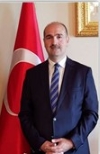
Dr. Yasin YILDIZ graduated from Marmara University, Faculty of Communication in 1998. Between 2001-2003, he completed his Master’s of Business Administration program at the University of East Anglia in England with the thesis “The Effects of Communication Related Factors on Increased Customer Responsiveness in Marketing Communications, CRM”. He also completed his master’s degree in 2003 at Marmara University, Institute of Social Sciences, Department of Communication Sciences with the thesis “The influence of internet journalism on the society and the evaluation of this influence in the light the comparison of Turkey and England”. In 2012, he completed his doctorate at Istanbul University, Institute of Social Sciences, Department of Labor Economics and Industrial Relations with the thesis “Relationship Between EU and Turkey Labour Markets With Regard to Ageing and Migration Dimensions”. In 2003, he was appointed as Advisor to the Presidency of the National Palaces Department, in 2009 as the Head of the National Palaces Department, and in 2011 as the Deputy Secretary General of the Grand National Assembly of Turkey (National Palaces). He is currently serving as the Head of the Directorate of National Palaces , to which he was appointed in 2018. His scientific studies are mainly on the protection and management of historical and cultural heritage. He wrote the article titled “Milli Saraylar Müdürlüğü’nün Kuruluş Mevzuatı” in the 2nd issue of the Milli Saraylar Belgeler Journal, and the article titled “Osmanlı Devleti’nde Cam İmalatı ve Beykoz Cam ve Billur Müzesi” in the 21st issue of Milli Saraylar Sanat Tarih Mimarlık Journal. He wrote the chapter “Topkapı Sarayı’nda Milli Saraylar Dönemi” in the book Topkapı Sarayı from the National Palaces Publications, and the chapter “Saray-Müzelerin Yönetiminde Milli Sarayların Kurumsal Dönüşümü” in the proceedings book of International Symposium of National Palaces.

PROF. DR. YILDIZ DEVECİ BOZKUŞ
Prof. Dr. Yıldız DEVECİ BOZKUŞ graduated from Ankara University, Faculty of Language, History and Geography in 2003. Shee received her MA from Ankara University, Institute of Social Sciences and her PhD from the Institute of Turkish Revolution History of the same university. In 2012, DEVECİ BOZKUŞ, who was in the United States as a postdoctoral researcher with a scholarship from the Council of Higher Education (YÖK), conducted studies on Armenians at the University of California, Los Angeles (UCLA). DEVECİ BOZKUŞ, who received the title of associate professor in the field of History of the Republic of Türkiye in 2015, conducted academic studies on the history of Armenian modernization in the Ottoman Empire and the role of non-Muslims in the society at the University of London, School of Oriental and African Studies (SOAS) in England with a TÜBİTAK postdoctoral research scholarship in 2019. In 2022, she taught courses on the Gallipoli Wars at the University of Tübingen in Germany as an ERASMUS scholar with a guest scientist status. DEVECİ BOZKUŞ, who worked for many years as a South Caucasus expert at the Armenian Studies Institute within the Eurasian Strategic Research Center (ASAM), has also undertaken the editorship of the Review of Armenian Studies and Ermeni Araştırmaları journals. DEVECİ BOZKUŞ, who worked at the Special Commission on Unfounded Claims of the Board of Education of the Ministry of National Education, has organized various trainings for researchers at the Police Academy and the Turkish Historical Society on Turkish-Armenian relations and the Armenian language. Deveci Bozkuş teaches courses such as Contemporary World History, Turkish-Armenian Relations, Armenian Question in International Politics, and History and Politics in the Caucasus in Turkish and English at Ankara University, as well as Ottoman History, Modern and Contemporary History, and History of the Republic of Turkey. DEVECİ BOZKUŞ, who has written numerous academic and popular articles on the history and culture of the Caucasus region, as well as books, editions, and translations, is fluent in English, German, Armenian (Eastern, Western, Grabar), Persian, and Ottoman (printed and Rican) languages. Shee is a faculty member at Ankara University, Faculty of Educational Sciences, Department of Turkish and Social Studies Education and is also the head of the Department of History Education.

Prof. Dr. Yunus KOÇ completed his BA at the History Department of Hacettepe University, Faculty of Letters in 1985 and his MA in 1988. He worked as an assistant specialist at the Turkish Historical Society in 1987. While working at the History Department of Hacettepe University, he went to France in 1990 for his doctorate. He received his PhD from Paris I University (Université de Paris I Pantheon-Sorbonne) in 1997. He served as Deputy Head of the History Department at H U. and between 2004-2008 as Deputy Director of the H.U. Institute of Turkish Studies. Koç, who received the title of associate professor in the field of “History of Ottoman Institutions and Civilization” in 2006, was appointed professor at the H.U. Institute of Turkish Studies in 2013. He engages in scholarly research and produce academic publications on subjects such as Ottoman Law in the Classical Period; Social Structure, Settlement and Population Problems in the Ottoman Empire; Ottoman Cities; Rural Economy in the Ottoman Empire, Ottoman provincial administration and historiography.
Some of his works are: XV. Yüzyılda Bir Osmanlı Sancağı’nın İskân ve Nüfus Yapısı, Nizam-ı Cedit Kanunları.

ASSOC. PROF. DR. YUNUS UĞUR
Assoc. Prof. Dr. Yunus UĞUR received his BA from the Sociology Department of Boğaziçi University and his MA and PhD degrees from the History program of the same university. He worked as a researcher at the History Department of Binghamton University, New York, between 2003 and 2004. Between 2009 and 2020, he served as the director of the Urban Studies Center and the head of the Urban Studies MA program at Istanbul Şehir University. He was a visiting researcher in Germany between 2016 and 2017. He has been a faculty member of the History Department of Marmara University since 2020. He is also the director of the Digital Humanities Research Center at the same university. In the 2024-25 term, he continues his studies at Freie Universität-Berlin, Germany, with the support of TÜBİTAK. He is the editor-in-chief of the Journal of Turkish Studies Literature (Türkiye Araştırmaları Literatür Dergisi) and he is among the founders of the Digital Ottoman Studies and Insight Digital Humanities platforms. He was a member of the Board of Directors of the Global Urban History Project (GUHP), and is a member of the European Association of Urban Historians (EAUH), the International Association for Urban Climate (IAUC), and the Middle East Studies Association (MESA).
His research interests encompass a wide range of topics, including Ottoman urban history, urban space and neighborhoods, digital history, historiography, historical sources, historical geography, oral history, climate and environmental history, and cultural heritage. He has authored and edited several influential works, such as Dijital Beşerî Bilimler ve Osmanlı Çalışmaları, Bir Semte Vefa, Tarih-i Raşid ve Zeyli (3 cilt), Vefanın Cennet Bahçeleri: Vefa Semti Hazireleri (2 cilt), Antik Çağ’dan XXI. Yüzyıla Büyük İstanbul Tarihi (10 cilt), İstanbul Türbe, Hazire ve Kabirleri: Fatih, Eyüpsultan, Beyoğlu, Fatih (4 cilt) ve Cumhuriyet Döneminde Ümraniye: Şehirleşme, Toplum, Ekonomi ve Yönetim.
